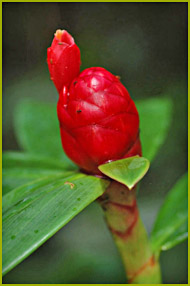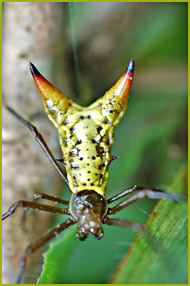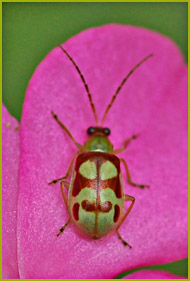SOIL BIOTA AND BIOGEOCHEMISTRY IN SOUTHERN ATLANTIC RAINFORESTS OF BRAZIL
ASSESSMENT OF THE ECOSYSTEM QUALITY OF SECONDARY FORESTS AND THEIR POTENTIAL FOR BIODIVERSITY CONSERVATION
The joint project SOLOBIOMA is an example of bilateral research on the background of the Convention on Biological Diversity (CBD), funded by the German Federal Ministry for Education and Research (BMBF) and the Brazilian Research Council (CNPq).
The acronym SOLOBIOMA results from the Portuguese project title 'Biota de SOLO e BIOgeoquímica na MAta Atlântica do Paraná'.
The project is coordinated by the working group on tropical ecology of the State Museum of Natural History Karlsruhe. German partners are animal ecologists at the University of Marburg, environmental biologists at the Technical University of Aachen and environmental analysts of ECT Ecotoxicology GmbH Flörsheim. Brazilian partners are soil scientists and botanists of the State University of Paraná (UFPR) in Curitiba, as well as a 'stakeholder', the non-governmental organization 'Society for Wildlife Research and Environmental Education' (SPVS).
Research Approach
In regenerating secondary forests of the Mata Atlântica biodiversity and functions of plants and soil organisms are studied in comparison to old forest areas, little influenced by man. On this basis, a classification system for assessing the quality of forest ecosystems and the importance of forest and agroforestry systems for the preservation of regional diversity will be developed.
First, the diversity of selected taxa as a function of location variables is measured. After identification of the organisms, data are combined and analysed through multivariate analysis. The influence of diversity on nutrient cycles is investigated experimentally. After combining all results the examined sites will be classified with respect to their habitat quality.
The ecosystematic approach and integrative distribution strategy visualize a high indication density. The findings will improve the efficiency of actions to conserve biodiversity and will be integrated in the management plans of the NGO Partner SPVS. Networking with Brazilian institutions increase the acceptability of the results through regional stakeholders and the chance of application.


